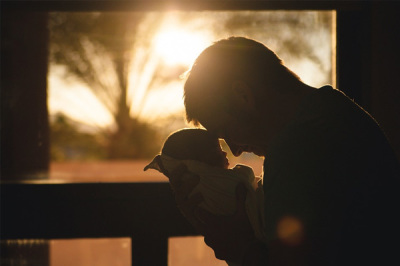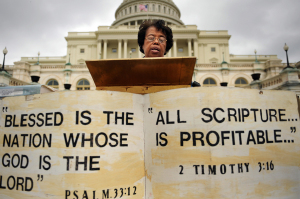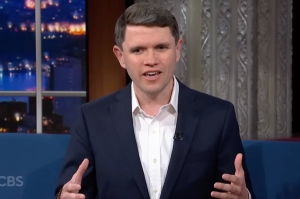How could my father do that?

My wife is pregnant with our first child. Our child is a gift from God, and Annie and I can’t wait to see, hold, kiss, and raise the child.
We’re grateful God has created a person in His image through us. We’re blessed (and challenged) that God has made us stewards of an eternal soul.
However, Annie is experiencing the challenges of pregnancy. Though we’re well into the second trimester, she’s still suffering through morning sickness (or more accurately, all-day sickness), fatigue, stomach pain from the baby’s growth, back pain, joint pain, swollen ankles, and more.
That doesn’t mean Annie isn’t healthy. It’s actually quite the opposite. As experienced parents know, these are all normal symptoms of a healthy pregnancy. So we’re thankful. Nevertheless, because of these symptoms, Annie needs me now more than ever.
Just as our child is dependent on Annie, Annie is dependent on me.
That’s why over the last few months, I’ve been asking myself: how could my father abandon mom while she was still pregnant with me? How could my father do that?
I’ve written extensively about my fatherlessness and especially, my mom’s heroic, godly, perseverant life. But I’ve become more grieved about my father and more grateful for mom since Annie’s pregnancy.
What could possibly make me abandon my child the way my father abandoned me? What would make me want nothing to do with my child? How could I abandon my child knowing they would never see or talk to me?
I’m so eager to love my child. I’m desperate to let the child know that though I will surely fail in so many ways, by the grace of God — until my Father in Heaven calls me home — I will never leave nor forsake the child. I will be there. I will be dad.
However, what occupies so much of my mind throughout Annie’s pregnancy isn’t what my father didn’t do for me. Rather, it’s what he didn’t do for mom.
Mom needed my father more than I did.
I was dependent on my mom, but she was dependent on my father. He ran away from his vows and he ran away from his vulnerable, pregnant wife. He didn’t love his wife, so he didn’t love his son.
So if I want to be a good father, I should be a good husband. If I’m faithful to my wife, I’ll be faithful to my child.
Originally published at Slow to Write.
Samuel Sey is a Ghanaian-Canadian who lives in Brampton, a city just outside of Toronto. He is committed to addressing racial, cultural, and political issues with biblical theology, and always attempts to be quick to listen and slow to speak.



























